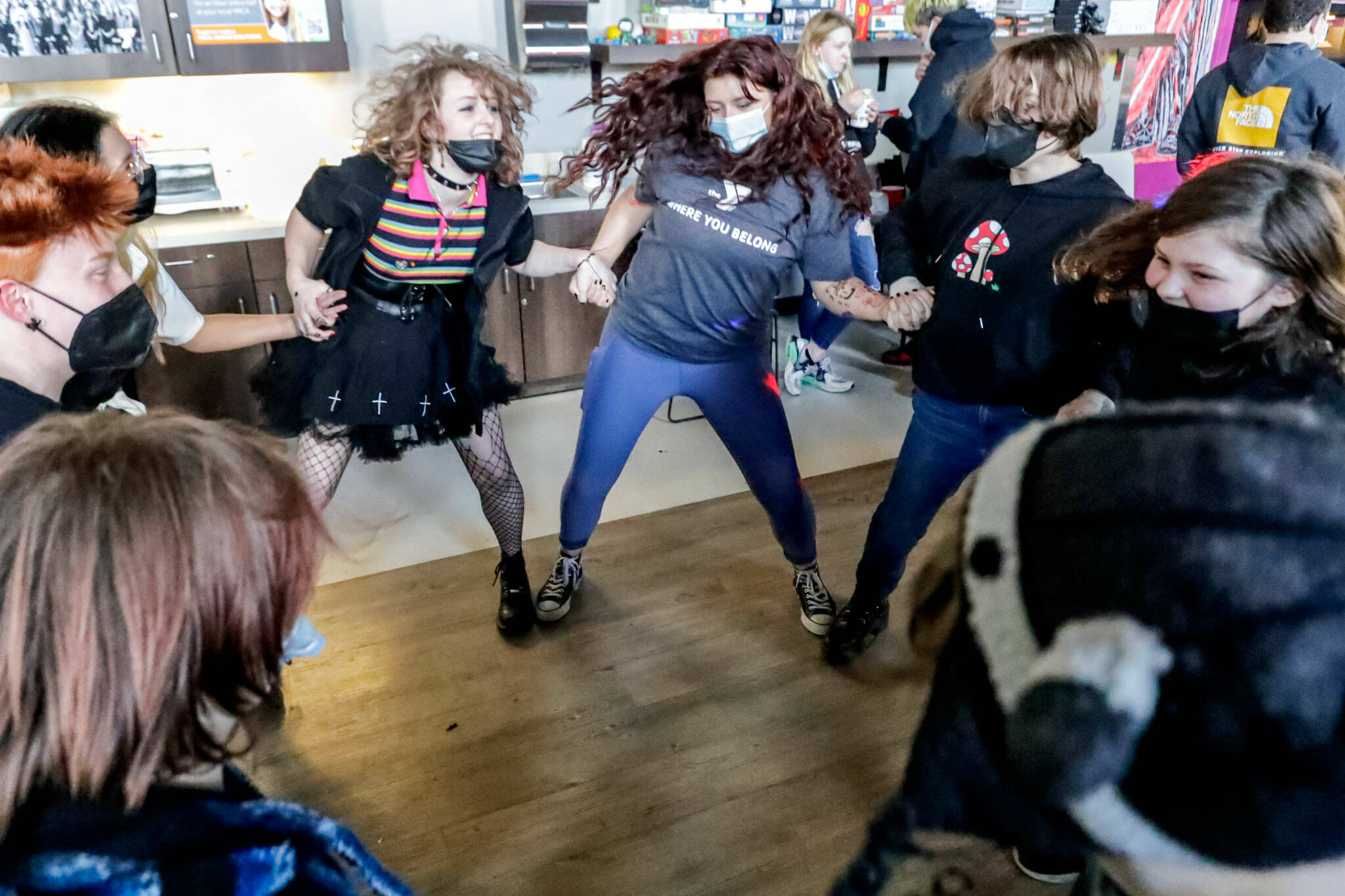By The Herald Editorial Board
Proposed guidelines that the Marysville School Board is expected to consider at its meeting Monday for extracurricular clubs intended to serve LGBTQ students have raised concerns for the emotional welfare of students and the interests and rights of parents.
Some compassion and consideration for the perspectives of all involved — students, parents and faculty — as those discussions continue before and following any decision can ensure that those concerns for students and parents are not played one against the other.
At issue are Gay Straight Alliance or Gender Sexuality Alliance clubs that teachers and counselors at Marysville School District schools had proposed for LGBTQ students and their families, offering what’s intended as a safe space for students once a week before the school day begins, as first reported in March by The Herald’s Isabella Breda.
“These students need our support,” said Veronica Underwood, a first-grade teacher at Sunnyside Elementary, said then. “They need somewhere to go. They need someone to talk to, and that’s what this club is about.”
Several districts in Snohomish County offer such clubs, including Everett, Mukilteo, Snohomish and Sultan.
Some Marysville district parents and school board members, however, have objected, raising concerns about limited parental oversight and potential discussions of sexuality, particularly for elementary-age school kids. Among the proposals discussed earlier by the board has been a requirement that students seeking to participate have the consent of parents to participate in such clubs.
But in seeking to allay the concerns of parents such a requirement could prevent a student from finding the “safe space” a club might offer; or worse, Kendrick Washington, director of the Policy Advocacy Group at ACLU Washington, told The Herald for a story last week.
“You’re either gonna force kids to out themselves, which could put them in danger in their own home. … Or what you’re going to do is you’re going to take a group of youths who would have had a place to go express themselves … and you’re going to force them deeper into hiding, for lack of a better term.”
This is not a small number of students for any school district in the county, state or nation. According to a 2019 survey compiled by the Centers for Disease Control and Prevention, about 2.5 percent of students consider themselves to be gay or lesbian, an additional 8.7 percent say they are bisexual and another 4.5 are uncertain about their sexuality.
As well, about 2 percent of students — a total of 1.3 million nationwide, again according to the CDC — identify as transgender, youths who know themselves to be one gender but who were labeled a different gender at birth. For transgender students, the issues are not about sexual attraction but about personal identity.
While those are significant numbers, LGBTQ students still represent a minority, which for children and youths who may see themselves as being different raises important issues for their self-acceptance and sense of belonging and respect among peers, family members and others, including teachers.
Recognizing that only 27 percent of transgender students say their families are “very supportive,” according to the CDC, increases the need for support and acceptance from others, such as might be found in a GSA club.
For the larger student body, GSA clubs also can be effective in reducing bullying behavior and encouraging all students to treat their fellow students with respect.
And that support is vital to student health. Research shows that trans youths with supportive families experience a 52 percent decrease in suicidal thoughts and a 46 percent decrease in attempts of suicide. LGBTQ students, overall, are seen as twice as likely to attempt suicide than their peers.
The needs of LGBTQ students to support each other prompted Doug Standish, a YMCA teen development director in Stanwood, to create PRISM, a club for LGBTQ youths and friends to connect each week.
“They want to be that person for somebody else that provides that space, that changes the trajectory of where that person was,” Standish told The Herald in March. “I can see how empowered and strong and knowledgeable and just awesome these youth are. And I’ve been able to see them grow into that more and more.”
Yet, involving parents in their child’s participation of a GSA club — particularly at the elementary school level — could provide that parent or parents connection to information and resources they may need in talking to their child and understanding his, her or their needs.
Of late these students — gay, lesbian, bisexual and transgender — and their parents have become the collateral damage in nationwide culture wars that are more about political control and campaign fundraising than they are about parenting and students’ emotional health. That self-serving bluster of candidates and pundits — along with the baseless and slanderous allegations of “indoctrination” and “grooming” — will need to be tuned out; those over-amplified voices have no sincere interest in the actual concerns of parents or the welfare of students.
Monday’s discussions before Marysville’s school board — like such conversations between child and parents — won’t be easy. And there may be no simple solutions that satisfy all concerns.
But by truly keeping the focus on students’ well-being, parents and school officials in Marysville and in districts across the county can find a resolution that serves all and keeps the conversation going.
Talk to us
> Give us your news tips.
> Send us a letter to the editor.
> More Herald contact information.

























